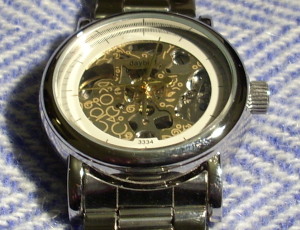There’s a certain state of mind which I’ve met from time to time: you get there through repeated sleep deprivation combined with stress. You only need a very small amount of stress.
I call this state ‘crying tired’ because when you’re there, you feel perpetually right on the brink of tears. Even when there’s absolutely nothing to be sad about, when things are going well, there’s that tight desperate sensation of Just Keeping It Together, for Appearances’ Sake.
The oddest things can help or make it worse: if you’re tired for a reason, you can blame that reason. Often I’ve found myself railing against whatever kept me from sleeping, or taking pride in whatever I achieved while I wasn’t sleeping. Either way, it helps.
Conversely, if the insomnia was entirely your own stupid fault, this makes things worse.
I have to wonder if the first unsettling touches of alzheimers feel like this: you’re not doing anything out of the ordinary, but everything is profoundly harder. Your own simple notes seem like the inscrutable wisdom of someone you could never hope to emulate.
The fact that your own lack of restraint led to this just serves to enhance the pervasive sense of hopelessness.
Simple, achievable work helps. Perspective helps. Caffeine only helps up to a certain point… and once you start down the dark-brewed path you need to stay on it, or it will hasten the inevitable crash.
Eventually, sleep will help, you tell yourself.






